Those We Lost
Those We Lost
The members of the University community taken by the COVID-19 pandemic will be remembered for their lasting impact on their fields, their communities, and their families.
Journalist. Pianist. Doctor. Candlemaker. Mother. Son. Daughter.
Among the grim toll of the COVID-19 pandemic were several alumni from all walks of life. One made innovations in musical instruments that are used worldwide.
Another recorded a Top 10 national hit. One taught for decades in a small town in upstate New York, while another busily covered news stories in New York City.
They graduated from the University with degrees in diverse fields— history, physics, neurology, and bassoon.
Each of them made a lasting impact— in small communities, big cities, on the world stage, and within their grieving families.
This list is based on information Review received through September. If we missed someone, email us at rochrev@rochester.edu.
Alan Abel ’51E
A legend in the world of percussion, Abel performed in the Philadelphia Orchestra from 1959 to 1997 and taught at Temple University from 1973 to 2019.
His inventions, used worldwide, include triangles and a bass drum stand that allowed the instrument to be sus-pended with rubber bands. “He was a builder of instruments,” the Philadelphia Inquirer wrote. “His particular take on the orchestral triangle was so successful that it became used in orchestras all over.”
Abel is considered one of the most important percussion educators of the second half of the 20th century. Philadelphia Orchestra timpanist Don Liuzzi told the Inquirer that more than a third of notable American orchestras include a percussionist who studied with Abel or with one of his students.
The Indiana native discovered drums as a young child, often joking that “my mother was a singer/pianist and my dad was a carpenter, so I combined the two.” While attending the Eastman School of Music, he performed as a part-time member of the Rochester Philharmonic Orchestra and, after graduating, spent two years in the US Air Force Band stationed in Geneva, New York.
After retiring, Abel continued to play frequently with the Philadelphia Orchestra and held annual workshops at Temple that attracted students from around the world.
A member of the Percussive Arts Society Hall of Fame, he died in April in Wynnewood, Pennsylvania. He was 91. Survivors include his wife of 68 years, Janet, and three children.
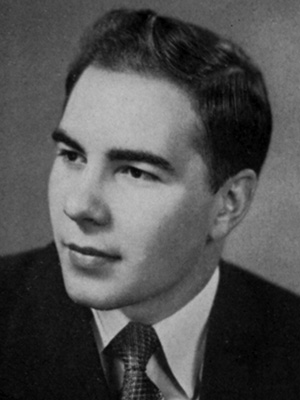
David Bernstein ’63
The New York Times called him an “ex-calculus teacher, lifelong political radical, and multitalented theater worker.” But there was much more to Bernstein, who died at 78 in Queens, New York, in May.
An early member of the national organization Students for a Democratic Society, Bernstein was arrested and jailed in 1965 for participating in the first draft board sit-in protest of the Vietnam War. He continued his activism in support of workers throughout his life.
After retiring from the University of Minnesota, where he served as a grant writer and taught in the theater arts and dance department, Bernstein and his wife of 42 years, Paula Rabinowitz, moved in 2016 to New York City, where he worked with the Long Island City Community Boathouse, a volunteer collective dedicated to providing the public with access to New York City rivers through free kayaking. Bernstein wrote grants, fixed equipment, and instructed people on how to kayak.
Rabinowitz called him “a solitary man” who biked, kayaked, fished, and solved crossword puzzles and math problems. A teacher, actor, director, and producer, he founded and built several theaters in Michigan. “A homebody, he had the misfortune to marry a wandering woman with whom, during just the past year, he traveled to Portugal, Spain, Hawaii, and Cuba,” his wife said. “After 42 years of love and struggle together, I am at a loss.”

Alan Finder ’69
For nearly three decades, Finder reported on or oversaw coverage of New York City government, education, sports, and other news for the New York Times. He served as reporter, bureau chief, editor—and mentor.
“He was,” the Times said, “an unflappable eye in the storm of daily newspapering.”
Former colleague Scott Fallon spoke for many journalists when he tweeted after Finder’s death: “He handled my stories with a trademark ‘don’t-worry-kid-I’ve-been-here-a-million-times’ demeanor. Alan was an all-world human being. I’m devastated.”
The Brooklyn native earned a bachelor’s degree in history from Rochester and a master’s in American studies from Yale before embarking on his newspaper career. He loved music, cooking, and books, but journalism was his passion.
Finder retired in 2011 but was working part time as an editor for a few publications before his death in March in Ridgewood, New Jersey. He was 72.
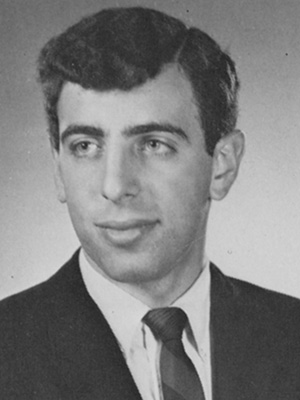
James Hughston ’57E
After graduating from the Eastman School of Music, where he majored in bassoon, the South Carolina native earned his master’s from Northern Illinois University and worked as a music teacher in Illinois for six years. He then took a similar position with the public school system in Johnstown, New York, working as an elementary music and school band teacher until his retirement. He also served as organist of the Amsterdam United Methodist Church for 42 years and was a member of the Guild of Organists.
Hughston died in April in Schenectady. He was 84. Survivors include his husband, James Vallee, and two children.
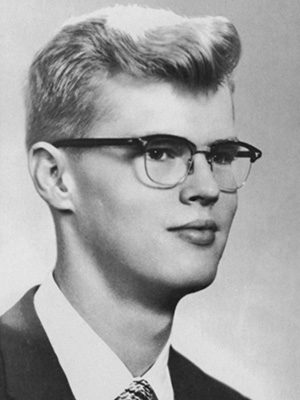
William Pursell ’52E, ’53E (MM) ’95E (DMA)
Pursell was touring as a jazz and R&B musician in 1960 when country singer Eddy Arnold heard him play and suggested he move to Nashville, the capital of country music. It was life-changing advice.
Pursell made Nashville his home and achieved great success as a recording session pianist, performing with stars such as Joan Baez, Bob Dylan, Patsy Cline, Johnny Cash, and Willie Nelson. His piano performance of the 1963 song “Our Winter Love” reached No. 9 on the Billboard Hot 100, while the full-length album of the same name peaked at No. 15 on Billboard.
Pursell earned two Grammy Award nominations— for his performance on Ken Medema’s 1974 album, Listen, and for his 1978 arrangement of “We Three Kings” for a National Geographic album. He taught at Belmont University’s School of Music in Nashville from 1980 to 2017. He died in Nashville in September. He was 94.
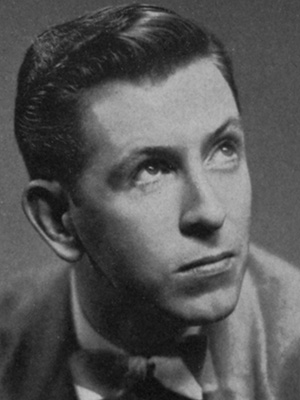
Jerome Spector ’62
Whether at work, at play, or at home, Spector was a man of long commitments. He owned a candle-making business for 30 years, attended weekly card games with the same friends for 40 years, and was married to his wife, Paula, for 50 years.
Spector started making candles while living on a commune in Vermont in the 1960s. Eventually, he started a business, Big Dipper Candles. He worked from his home in Chester, New York, and sold the homemade products— sometimes shaped like sushi rolls or matzoh balls— at craft shows up and down the East Coast. He also supplied Jewish community centers and synagogues around the world with distinctive and elegant Hanukkah candles.
In his spare time, he tended to gardens at his home and synagogue, volunteered at a soup kitchen, and started a program to supply low-income children with snacks at school they couldn’t otherwise afford.
Spector died in April in Warwick, New York. He was 79.

Janice Wiesman ’80
Wiesman was one of the first undergraduates to earn a bachelor’s degree in neurology at the University and built an acclaimed career in the field. She was considered a leading authority on the neurological ramifications of the rare disease known as amyloidosis and founded the New York City branch of the Women in Neurology Group. Harvard trained, she worked as a clinical associate professor of neurology at New York University’s School of Medicine and staff neurologist at Bellevue Hospital, as well as an adjunct assistant professor at Boston University’s School of Medicine and staff neurologist at Boston Medical Center.
Longtime friend David Higgins ’80, ’87 (PhD) says it was Wiesman’s role as mentor and advisor to medical students and residents that gave her the most satisfaction.
Higgins met Wiesman when both were first-year students at Rochester in 1976. He says Wiesman’s professional accolades are only part of her story.
“She had a zest for life,” he says. “She was a political activist, avid traveler, and fashion lover.” Wiesman, Higgins, and their spouses traveled extensively together, including trips to Hawaii and Cuba, and had planned visits to Denmark and Ireland before the COVID-19 pandemic hit.
Wiesman died in August at age 61. She’s survived by her husband, John Mannion, her daughter, Hannah, and her 94-year-old mother.
“The three most important people in the world to her,” Higgins says.
This article originally appeared in the fall 2020 issue of Rochester Review magazine.
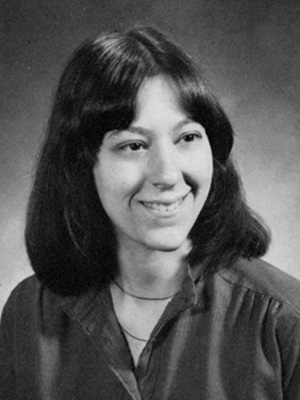
– Rochester Review


